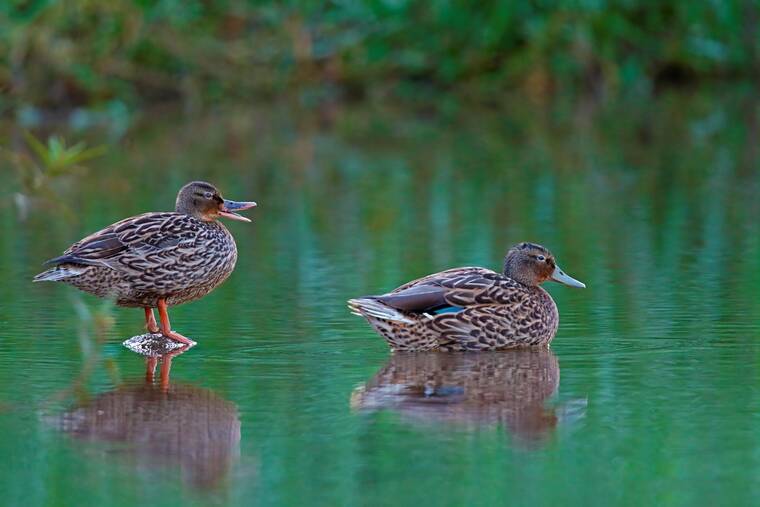
State warns of possible bird flu case in sick Manoa duck
State officials are urging caution after a presumptive case of avian influenza has been identified in an ailing duck at the University of Hawaii at Manoa.
A student found the duck earlier in the week, according to the Hawaii Department of Health. Laboratory testing confirmed the duck carried the H5 subtype of influenza A virus.
Confirmation of avian influenza, or H5N1, is pending from the National Veterinary Services Laboratories in Iowa, in the next week or two.
At this time, officials said, the risk of infection to humans is considered low.
“Human infections remain rare and are primarily linked to direct animal exposure,” said health officials in the release.
Avian influenza has been circulating worldwide, and is highly infectious among wild birds and poultry, with outbreaks on the U.S. continent affecting hundreds of dairy cattle herds in 18 states, including California.
Don’t miss out on what’s happening!
Stay in touch with breaking news, as it happens, conveniently in your email inbox. It’s FREE!
The spread of highly pathogenic avian influenza, so far, has been limited in Hawaii, which has had no human cases.
Hawaii’s first outbreak of avian influenza was confirmed at Susie’s duck sanctuary in Wahiawa last November.
The Hawaii Department of Agriculture & Biosecurity confirmed that at least 10 birds on the property, including ducks, geese, and a wild zebra dove, died from avian influenza.
More than 70 waterfowl, including some ducks adopted by a family at Pearl Harbor, either died or were euthanized in relation to that outbreak.
Last November, officials also confirmed avian influenza in a wild duck tested at James Campbell National Wildlife Refuge in Kahuku.
That duck showed no signs of infection when tested, and was swabbed and released by the U.S. Fish and Wildlife Service during an ongoing project on genetics.
Since then, no new avian influenza detections had been reported in the Hawaiian islands.
DOH, DAB, and the state Department of Land and Natural Resources are monitoring health reports, poultry farms and wild bird populations for any signs the virus has spread.
The student had reported the sick duck to the Hawaii Wildlife Center, a nonprofit that saves and rehabilitates wild birds, including seabirds disoriented by artificial lights during fallout season.
Fallout season began in mid-September and lasts through mid-December.
”As Hawaiʻi enters migratory bird season, this latest case is a reminder that wild birds may carry diseases to the islands and the public should remain vigilant,” said officials in the release.
Officials remind anyone who encounters sick or dead birds to:
>> Avoid touching or handling wild birds, especially waterfowl or shorebirds. Upon finding a wild bird, follow these instructions.
>> Report multiple or unusual illnesses in poultry, livestock, or other wild birds to the DAB Animal Industry Division at 808-483-7100, Monday to Friday from 7:45 a.m. to 4:30 p.m., 808-837-8092 during non-business hours and holidays; or via email at [email protected].
First Appeared on
Source link






